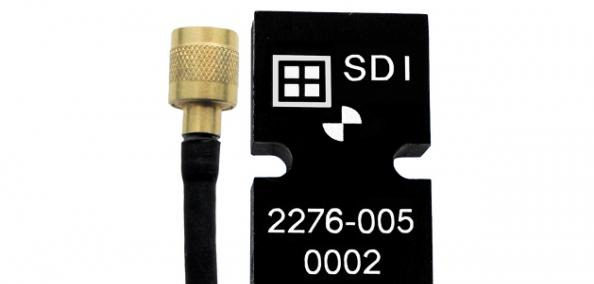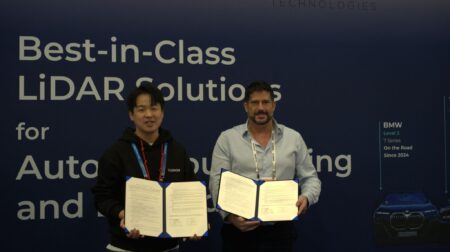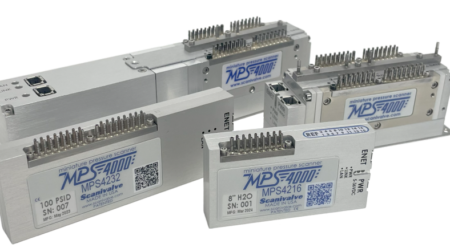US-based Silicon Designs recently announced the launch of a new range of inertial-grade MEMS capacitive accelerometer chips, modules and supporting data acquisition systems. The Model 2276 Series sensors are designed for zero- to medium-frequency aerospace and automotive testing, industrial vibration monitoring and robotics instrumentation applications.
The company says they are available in eight standard ranges, from ±2g to ±400g, and combine an integrated low-noise, nitrogen-damped, fully calibrated MEMS capacitive accelerometer chip together with high-drive, low-impedance buffering, secured within an epoxy-sealed, rugged anodized aluminum housing.
The company claims this design allows the sensors to withstand shock inputs of up to 5,000g, as well as standard operating temperature ranges from -55°C to +125°C (-67°F to 257°F). The accelerometers also boast a temperature shift coefficient of -100 to +100PPM of span/°C, and a scale factor temperature shift coefficient of -150 to +50PPM/°C.
The units respond to both DC and AC acceleration, with choice of either two analog ±4V (differential), or 0.5 to 4.5V (single-ended) outputs, both of which vary with acceleration. At zero acceleration, output differential voltage is nominally 0V DC (DC response). The company notes that onboard voltage regulation also minimizes supply voltage variation effects. Additionally, it points out that the accelerometer’s low mass (9g) and small size (0.94 x 0.63 x 0.425in [2.4 x 1.6 x 1cm]) can help minimize mass loading effects on a test article.





